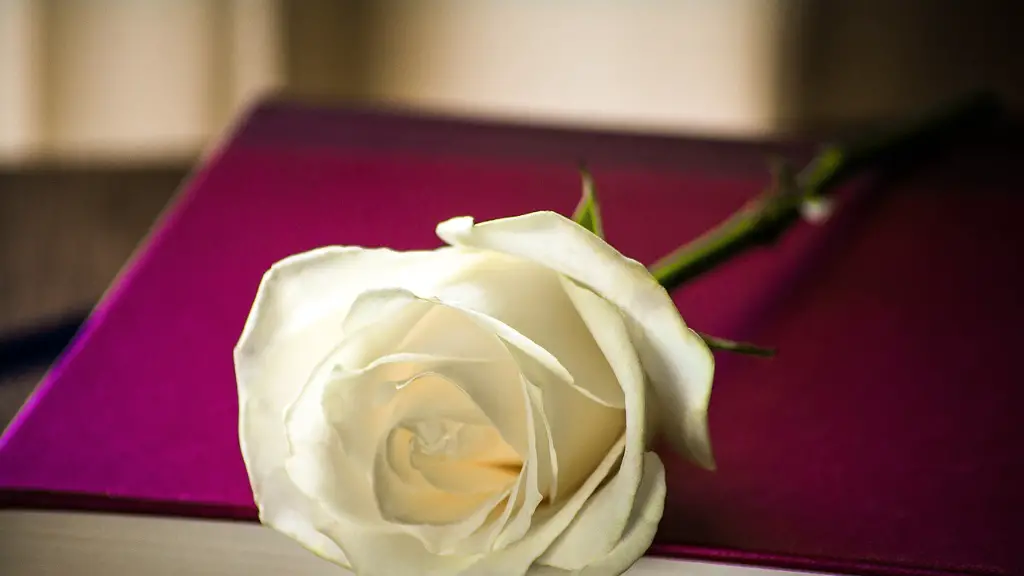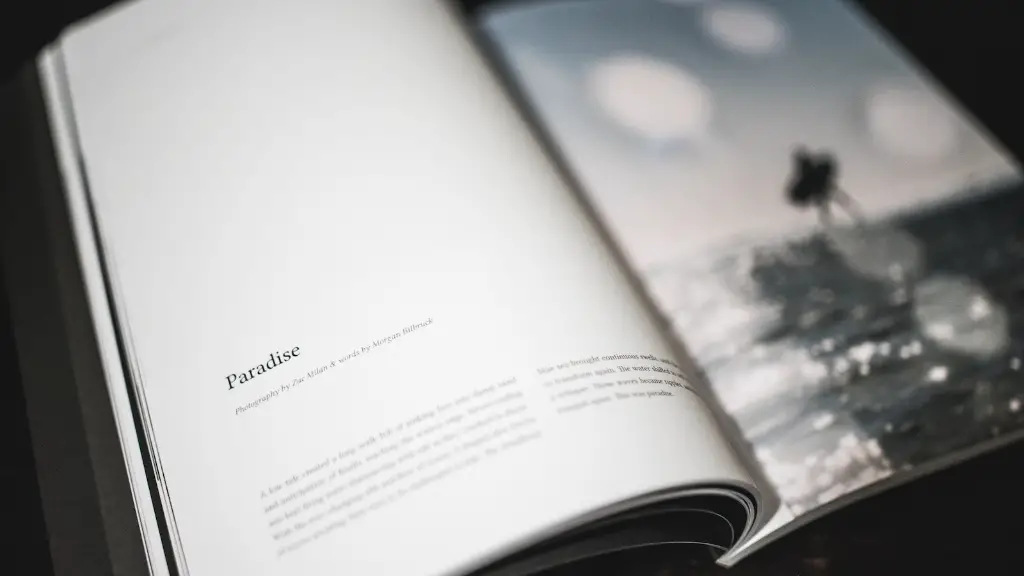Uniqueness of Poetry and its Appeal to Readers
Poetry has been around for centuries, entertaining and intriguing readers with its unique characteristics and style, often very different from other genres of literature. While modern audiences may still find it difficult to navigate the complex poetic language and imagery, there are many wonderful aspects of poetry that make it a fascinating and rich form of expression.
One of the main elements that sets poetry apart is its condensed form. A single poem is usually no more than a page or two, making it possible to read a complete poem in seconds. The brevity of poems allows readers to interpret multiple meanings and uncover deeper meanings behind the words. The fact that a poet can convey an entire story, idea or emotion in so few words is what sets them apart from other forms of literature.
Another element that makes poetry unique is its structure. Unlike other forms of writing which use a linear narrative, poetry often uses a variety of structures or forms, such as sonnets, free verse, ballads and haikus, to shape the message. Each poetic form requires the writer to use a different style and rhyme scheme, and to employ more creative and figurative language to get the desired effect. By manipulating language and structure in such a way, a poet can craft a stunning and memorable narrative.
Finally, poetry allows readers to experience a sense of deep emotion and connection to the words in a way they can’t with other genres. Poetry has the power to evoke strong feeling and emotion in the reader, which is something that is often lacking in other types of writing. The unique combination of language, metaphor and rhythm in a poem can create powerful images in the minds of readers, allowing them to connect with the ideas in a vivid and meaningful way. This is something that is rarely experienced in other forms of writing.
How Language is Used in Poetry
When it comes to the language used in poetry, it is often a lot richer and more complex than in other types of writing. Poets often employ vivid imagery, metaphors and similes to convey the feelings and emotions in their poem in a more evocative way. They also make use of symbolism, alliteration and onomatopoeia to add an extra layer of meaning to their work. All these elements help to make the meaning of the poem more vibrant and help to appeal to the reader’s senses.
Although it might appear to be difficult to understand at first, the language used in many poems is quite accessible. Poets often use simple language, but in such a way that it creates beautiful imagery in the reader’s mind. Rhyme and repetition is also often used to create an emotional connection with the reader and to draw out the deeper meaning behind the words.
Common Themes in Poetry
When it comes to common themes in poetry, love is perhaps the most enduring of all. It is often used as a way for poets to explore a range of emotions, from joy and tenderness to heartache and despair. Nature is another popular theme in many poems, as it provides an opportunity for the poet to express their thoughts and feelings on the beauty and fragility of the natural world.
In addition to love and nature, poets also write about a variety of other topics, such as politics, religion and even death. Social and political issues are often explored in depth in many contemporary poems, as poets use their work as a way to comment on current events. Poems also often have spiritual themes, as poets seek to explore the meaning of life, death and the afterlife.
Rise in Popularity of Poetry
Recently there has been a surge in the popularity of poetry, particularly among the younger generation. It is now much more accessible than ever before, thanks to platforms such as YouTube, Instagram and other social media. Young people are able to discover and share a variety of different poems from all over the world, often creating a vibrant and engaging community.
The rise in popularity of spoken word poetry has also seen a large increase in the number of poets writing and performing their work. Many of these performances are entertaining, insightful and often incredibly moving, often striking a chord with audiences in ways that other forms of writing cannot.
The Fascinating Role of Poetry in Modern Culture
In modern culture, poetry has become more than just a form of expression – it is now an integral part of many people’s everyday lives. It can be found in books, films and even video games, often expressing a certain theme or idea in a powerful and emotive way. Poetry has also become a popular form of protest and political activism, as poets use their words to speak out about injustice and inequality.
The rise of slam poetry, or performance poetry, has also seen poetry become a popular form of entertainment. It is now a common sight to see a poet on a stage, delivering their work with powerful emotion and engaging with the audience in an intimate way.
Power of Poetry
The power of poetry lies in its ability to capture and explore the human experience in unique and imaginative ways. Through the use of metaphor and symbolism, it can communicate difficult and complex themes in a simple and affecting way. It can express and evoke strong emotions, and can provide readers with a powerful and lasting connection to words and ideas.
Ultimately, poetry can be interpreted in a variety of ways depending on the reader’s perspective. It can be appreciated at a shallow level or it can be examined deeply, and even the slightest of changes can have an impact on the interpretation of a poem. This is why poetry has always been so popular and continues to be enjoyed by millions of people all over the world.
Originality of Poetry
Apart from its unique form and style, poetry is also admired for its originality. Unlike other forms of writing, which can often be generic and formulaic, poetry allows the reader to experience something new, and to explore different perspectives and ideas. Many poets also challenge the status quo and push boundaries within their work, encouraging readers to think outside the box and broaden their understanding of the world.
No two poems are the same, and even when a poet employs a certain structure or form, they will often add their own individual flair to shape the poem into something totally original. This is why poetry remains such a beloved form of expression, as it never fails to surprise and delight readers who come to appreciate its unique beauty.
Techniques Used in Poetry
In order to write effective and engaging poetry, poets must be cognizant of the various techniques and conventions used in writing poems. They must understand the basics of poetic “devices” such as rhyme, meter, alliteration and simile, and employ them in a way that conveys their message. Additionally, a poet must consider the tone and mood of the poem, and construct their words accordingly.
It is also important that poets create an emotional connection with their audience, as this will make the poem more meaningful and make readers more likely to invest their time and energy in it. A poet should also use imagery and metaphor to bring their poem to life, and should make full use of poetic devices, such as onomatopoeia, to capture the reader’s attention.
Impact of Poetry on Other Forms of Writing
The influence of poetry on other forms of writing is undeniable. Many writers, especially fiction writers, draw upon the language, imagery and structure of poetry when crafting their stories. This has become increasingly evident in modern literature, with a rise of poetic influences in the work of authors such as Haruki Murakami and Toni Morrison.
Furthermore, poetry is often used as a means of education and exploration. Studies have shown that poetry has a positive impact on children’s learning, as it encourages them to think more deeply and creatively about the world around them. In addition, it can also be employed as a way for adults to reflect of their experience and to express their feelings in a powerful and sympathetic way.
Benefits of Poetry
The benefits of poetry are many. Not only is it an excellent way of exercising the creativity and imagination, it can also provide catharsis and emotional healing. It can provide solace and comfort in times of hardship, and can also help us to make sense of the chaos of our lives.
Finally, poetry can be used to connect with others. By sharing our experiences, struggles and fears in the form of a poem, we can create a strong bond with others and develop a more meaningful connection. This is why poetry continues to be a popular form of expression and why so many people continue to appreciate its deep and powerful beauty.


